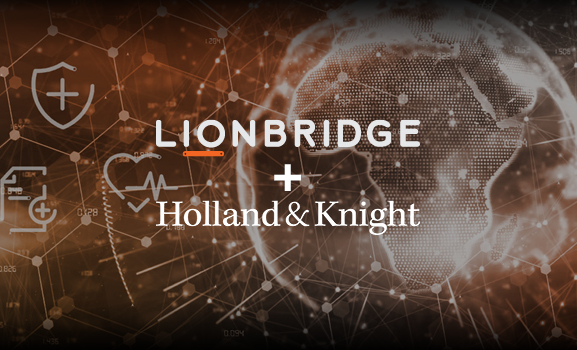- WHAT WE DO
Additional Services

- Industries

Case Study: Multilingual Retail Marketing
New AI Content Creation Solutions for a Sports and Apparel Giant

- RESOURCES

- WHO WE ARE

What We Do Home
Generative AI
- AI Translation Services
- Content Remix
AI Training
- Aurora AI Studio™
Machine Translation
- MT Tracker
Instant Interpreter
Smart Onboarding
Translation Service Models
Content Services
- Technical Writing
- Training & eLearning
- Financial Reports
- Digital Marketing
- SEO & Content Optimization
Translation Services
- Video Localization
- Software Localization
- Website Localization
- Translation for Regulated Companies
- Interpretation
- Instant Interpreter
- Live Events
- Language Quality Services
Testing Services
- Functional QA & Testing
- Compatibility Testing
- Interoperability Testing
- Performance Testing
- Accessibility Testing
- UX/CX Testing
Industries Home
Life Sciences Translations
- Pharmaceutical Translations
- Clinical Trial Translations
- Regulatory Translations
- Post-Approval Translations
- Corporate Pharma Translations
- Medical Device Language Services
- Validation and Clinical
- Regulatory Translations
- Post-Authorization Translations
- Corporate Medical Device Translations
- COA Translation Services
Banking & Finance
Retail
Luxury
E-Commerce
Games
Automotive
Consumer Packaged Goods
Technology
Industrial Manufacturing
Legal Services
Travel & Hospitality
Insights
- Blog Posts
- Case Studies
- Whitepapers
- Solution Briefs
- Infographics
- eBooks
- Videos
Webinars
Lionbridge Knowledge Hubs
- Positive Patient Outcomes
- Modern Clinical Trial Solutions
- Patient Engagement
- AI Thought Leadership
SELECT LANGUAGE:
At Lionbridge, we’ve spent years helping auto manufacturers move into the fast lane.
We count some of the biggest automotive manufacturers around the world—from Sweden to Japan to the United States—among our clients.
As globalization and digitization converge, the way we partner with our auto clients is starting to change. We talked with three Lionbridge experts in the automotive field about the past, present and future of the auto industry, plus how we work with auto companies and how new advances present new possibilities for our partnerships. Here’s what Global Program Director Andrzej Wozniak, Account Executive Carolina Bokesten, and Senior Account Director Armin Halder had to say.
Q: What are Lionbridge’s offerings for automotive companies?
AW: Our automotive accounts are very big. We translate both technical documentation and marketing materials. We translate various elements of the cars, including displays, navigation/GPS systems, and on-board computers. We also translate owner’s manuals and web-based trainings for trainers, salespeople, and eventually customers themselves.
CB: We do a lot: localization including transcreation and translation, multimedia, SEO, brochures…we have consultants in place handling software translation that is inside vehicles for the drivers, and we also test automotive software. We’ve been very successful with transcreation, especially when clients felt like something was lacking in their translations in other markets.
AH: We can adapt our service to clients’ requirements in terms of service and turnaround time. We offer years of experience working with many of the world's leading automotive manufacturers. Our integrations into many different content management systems, as well as a user-friendly customer portal, make it easy to work with us, and we employ the industry-leading methodology for harnessing AI to improve the translation process.
Q: What’s one factor automotive companies should consider when picking an LSP? What advice do you have for automotive companies selecting an LSP?
AW: Automotive companies should really consider getting everything from one source to keep their products and company in a cohesive bundle. We partner with many of our clients from the beginning—from scratch, in a way. We work with the divisions designing the car, building the car, then describing or marketing the car. This ensures the same terminology is used through the process. To have the greatest terminology reuse, the greatest savings, the greatest safety and consistency, automotive companies should choose one full-service LSP.
Q: Why do you think automotive companies choose Lionbridge as their LSP?
AH: I think automotive companies, like industrial companies, choose Lionbridge in part because of the size of our company, our technology stack, and our worldwide reach. Our customers can already take for granted that we deliver excellent linguistic services. We coordinate a network of independent specialist translation resources, and we add value through project management.
CB: And I think automotive companies are really focusing on IT software to solve their challenges, especially to streamline their software, because they are so big with so many stakeholders in different departments. Some of them are thinking of incorporating translation into their stack of software, like a translation management system (TMS).
Some are so used to working with different agencies for different topics that a fragmented approach to vendor management is kind of in their DNA. But, as Andrzej notes, one supplier could help them with all the translations they need. We have so many expert translators that we can easily ramp up, allowing automotive companies to add new translations within a short period of time. Smaller agencies aren't able to do that.
Q: How has the automotive industry changed since you started at Lionbridge?
AW: It’s all become much more digital. When I started out in this industry, the most important piece of content for automotive clients was the user manual. That was the alpha and omega of what we were producing. Now the printed product is just the tip of the iceberg. There’s a huge amount of content underneath: digital version of manuals, short instructional videos on YouTube, apps, and more.
Q: What have those changes meant for the relationship between automotive company and LSP?
CB: 20 or 30 years ago, more automotive manufacturers had internal teams of translators. In recent years, they’ve increasingly outsourced translation—and now my feeling is that they want to centralize translation even more to optimize SEO across regions. This has shifted the relationship with LSPs—we are more like strategic partners now. For example, automotive companies now ask us for our opinions before they do something like a CMS upgrade.
AH: Before, our service was always in the middle of content creation and final desktop publishing. Now it extends further—and the content creation services we provide continually become more agile, almost like software development. The need to support the entire content process, from creation to transformation to multichannel distribution, is why working with one LSP that can cover that entire range of services makes so much sense.
Q: What are your predictions for the auto industry? What is Lionbridge’s role in that future?
AH: Connected cars—that is where everything is going and where new needs will arise. It’s still very new, but fortunately Lionbridge is already there. We’ve employed cutting-edge technology on behalf of our auto clients for decades.
What they [auto companies] need is technology. We can connect to their content management systems and give them a way to get all of their content, which can be thousands of pieces of content per day, into a Lionbridge environment with a technical setup that’s very automated and very smooth.
Beyond that, autonomous vehicles are going to have a transformative impact on the future of the automotive industry. While developments in Natural Language Processing and image annotation are generally associated with driverless cars, they are also being used to improve the in-car experience in today’s vehicles. The great challenge for LSPs in automotive will be to both create content that can serve the customer and prepare the linguistic data that will underpin the artificial intelligence revolution.
CB: I think, or I hope, at least, that auto manufacturers everywhere will continue to streamline their operations, because they have so many platforms that can make IT costs really high. Streamlining can give companies a more holistic view, an umbrella view of their organization. And I think we can play a part in that.
Q: What challenges do you anticipate the industry (and localization processes for it) will face in the future?
AW: The industry is moving very quickly into electric cars. It seems like every brand has produced or is about to produce an electric car. And while that’s exciting, the rapid change could cause some industry issues as unexpected problems pop up.
On the language side of things, automakers, like all clients, are always trying to make their processes less expensive. I think in the next couple of years MT will be an even bigger topic and an important factor in our translation work for auto companies, which is why it’s great Lionbridge has started our MT projects ahead of the curve. An agile combination of MT and human translation will help us improve the value of our offerings to automotive customers, who can then pass on that value to the future owners of their vehicles.
Interested in learning more about the services Lionbridge provides automotive customers? Reach out to us for more information or to get started on a project.




